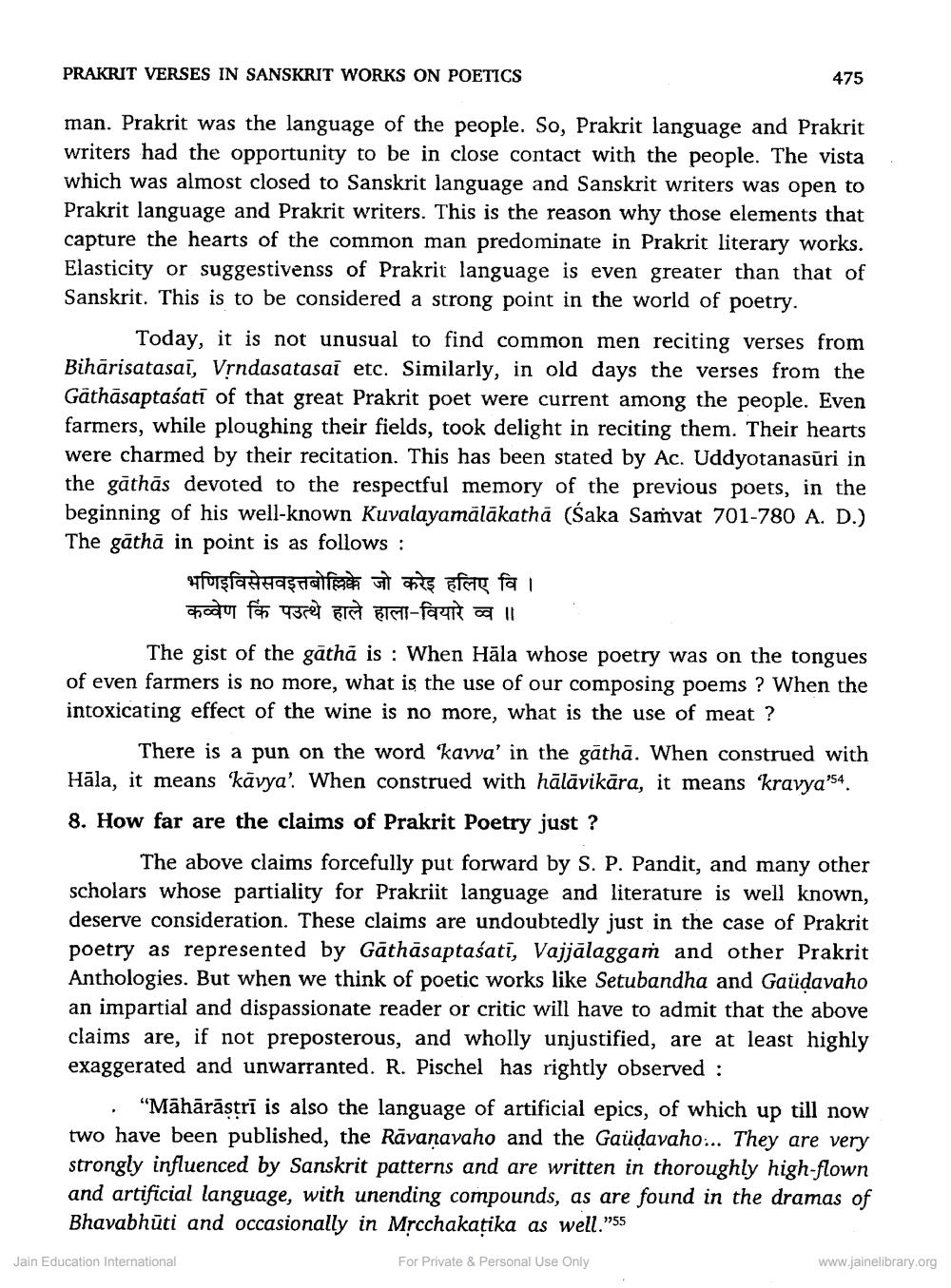________________ PRAKRIT VERSES IN SANSKRIT WORKS ON POETICS 475 man. Prakrit was the language of the people. So, Prakrit language and Prakrit writers had the opportunity to be in close contact with the people. The vista which was almost closed to Sanskrit language and Sanskrit writers was open to Prakrit language and Prakrit writers. This is the reason why those elements that capture the hearts of the common man predominate in Prakrit literary works. Elasticity or suggestivenss of Prakrit language is even greater than that of Sanskrit. This is to be considered a strong point in the world of poetry. Today, it is not unusual to find common men reciting verses from Biharisatasai, Vrndasatasai etc. Similarly, in old days the verses from the Gathasaptasati of that great Prakrit poet were current among the people. Even farmers, while ploughing their fields, took delight in reciting them. Their hearts were charmed by their recitation. This has been stated by Ac. Uddyotanasuri in the gathas devoted to the respectful memory of the previous poets, in the beginning of his well-known Kuvalayamalakatha (saka Samvat 701-780 A. D.) The gatha in point is as follows : भणिइविसेसवइत्तबोल्लिक्के जो करेइ हलिए वि / कव्वेण कि पउत्थे हाले हाला-वियारे व्व // The gist of the gatha is : When Hala whose poetry was on the tongues of even farmers is no more, what is the use of our composing poems ? When the intoxicating effect of the wine is no more, what is the use of meat ? There is a pun on the word 'kavva' in the gatha. When construed with Hala, it means 'kavya'. When construed with halavikara, it means 'kravya'54. 8. How far are the claims of Prakrit Poetry just ? The above claims forcefully put forward by S. P. Pandit, and many other scholars whose partiality for Prakriit language and literature is well known, deserve consideration. These claims are undoubtedly just in the case of Prakrit poetry as represented by Gathasaptasati, Vajjalaggam and other Prakrit Anthologies. But when we think of poetic works like Setubandha and Gaudavaho an impartial and dispassionate reader or critic will have to admit that the above claims are, if not preposterous, and wholly unjustified, are at least highly exaggerated and unwarranted. R. Pischel has rightly observed : . "Maharastri is also the language of artificial epics, of which up till now two have been published, the Ravanavaho and the Gaudavaho... They are very strongly influenced by Sanskrit patterns and are written in thoroughly high-flown and artificial language, with unending compounds, as are found in the dramas of Bhavabhuti and occasionally in Mrcchakatika as well."55 Jain Education International For Private & Personal Use Only www.jainelibrary.org




